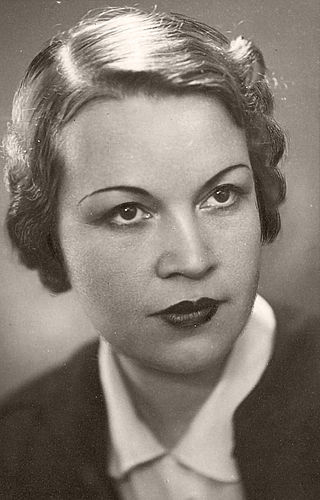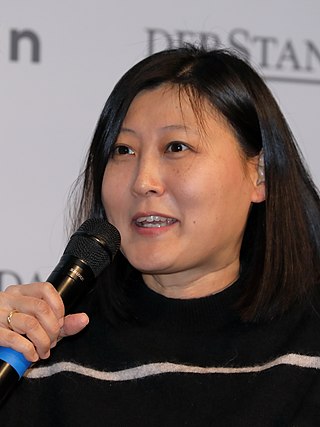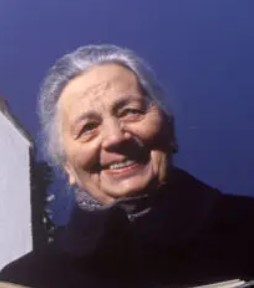Related Research Articles

Anna Seghers, is the pseudonym of German writer Anna Reiling, who was notable for exploring and depicting the moral experience of the Second World War. Born into a Jewish family and married to a Hungarian Communist, Seghers escaped Nazi-controlled territory through wartime France. She was granted a visa and gained ship's passage to Mexico, where she lived in Mexico City (1941–47).

Eva Maria Charlotte Michelle Ibbotson was an Austrian-born British novelist, known for her children's literature. Some of her novels for adults have been reissued for the young adult market. The historical novel Journey to the River Sea won her the Smarties Prize in category 9–11 years, garnered an unusual commendation as runner-up for the Guardian Prize, and made the Carnegie, Whitbread, and Blue Peter shortlists. She was a finalist for the 2010 Guardian Prize at the time of her death. Her last book, The Abominables, was among four finalists for the same award in 2012.

Hans Herbjørnsrud was a Norwegian author of short stories. His works frequently play with the differences between Norwegian languages Bokmål and Nynorsk and the various Norwegian dialects. His stories' characters sometimes playfully mix and invent languages, sometimes become caught up in their linguistic games and start losing their identity.

Lygia Fagundes da Silva Telles, also known as "the lady of Brazilian literature" and "the greatest Brazilian writer" while alive, was a Brazilian novelist and writer, considered by academics, critics and readers to be one of the most important and notable Brazilian writers in the 20th century and the history of Brazilian literature. In addition to being a lawyer, Lygia was widely represented in postmodernism, and her works portrayed classic and universal themes such as death, love, fear and madness, as well as fantasy.

Anna Funder is an Australian author. She is the author of Stasiland, All That I Am, Wifedom: Mrs Orwell’s Invisible Life and the novella The Girl With the Dogs.

Elisaveta Bagryana, born Elisaveta Lyubomirova Belcheva, was a Bulgarian poet who wrote her first verses while living with her family in Veliko Tarnovo in 1907–08. She, along with Dora Gabe (1886–1983), is considered one of the "first ladies of Bulgarian women's literature". She was nominated for the Nobel Prize in Literature three times.

Domenico Starnone is an Italian writer, screenwriter, and journalist.
Helga Schubert is a German psychologist and author.

Suzette Mayr is a Canadian novelist who has written six critically acclaimed novels and is currently a professor at the University of Calgary's Faculty of Arts. Mayr's works have won and been nominated for several literary awards.
The European Union Prize for Literature (EUPL), established in 2009, is a European Union literary award. Its aim is to recognise outstanding new literary talents from all over Europe, to promote the circulation and translation of literature amongst European countries, and to highlight the continent's creativity and diversity.

Sara Mannheimer is a Swedish novelist. She hails from Gothenburg and was educated in the US, Holland, and the Czech Republic. Her debut novel Reglerna was nominated for the August Prize and won the debut writers' prize from Borås Tidning newspaper. Another novel Handlingen was nominated for Swedish Radio's best novel prize, and won the EU Prize for Literature.

Anna Weidenholzer is an Austrian journalist and writer.

Anna Bernhardine Eckstein was a German champion of world peace, who trained as a teacher and campaigned for peace across the world. She gathered six million signatures on a petition and, in 1913, was nominated for the Nobel Peace Prize. The outbreak of the First World War interrupted her plans but her ideas influenced the Kellogg–Briand Pact of 1928.

Anna Kim is an Austrian writer.

Niviaq Korneliussen is a Greenlandic writer, who writes in Greenlandic and Danish. Her 2014 debut novel, Homo Sapienne, was written in Greenlandic, as well as in a Danish translation by the author, with both published by Milik in 2014. Naasuliardarpi (2020) was her follow-up a few years later, and earned her the prestigious Nordic Council Literature Prize.

Lucie Faulerová is a Czech writer. She got a degree in Czech studies from Palacký University in Olomouc. Her debut novel Lapači prachu was nominated for the 2017 Magnesia Litera Award and the Jiří Orten Award. It has appeared in Spanish and German translation. With Kateřina Šedá, she co-authored the book BRNOX – Průvodce brněnským Bronxem, about a poor part of Brno. It won the 2016 Magnesia Litera Award for journalism.

The 1966 Nobel Prize in Literature was divided equally between Shmuel Yosef Agnon (1888–1970) "for his profoundly characteristic narrative art with motifs from the life of the Jewish people" and Nelly Sachs (1891–1970) "for her outstanding lyrical and dramatic writing, which interprets Israel's destiny with touching strength."

The 1972 Nobel Prize in Literature was awarded to the German author Heinrich Böll (1917–1985) "for his writing which through its combination of a broad perspective on his time and a sensitive skill in characterization has contributed to a renewal of German literature." Böll is the fifth German author to be recipient of the prize.

Ida Ospelt-Amann was a Liechtensteiner poet who wrote in the Alemannic dialect that is spoken in the Vaduz region. She was considered the most important of her country's dialect poets. Her works deal primarily with rural life, as well as with her home town of Vaduz, and its change over time.

The 1928 Nobel Prize in Literature was awarded to the Danish-born Norwegian novelist Sigrid Undset (1882–1949) "principally for her powerful descriptions of Northern life during the Middle Ages." She is the third female recipient of the literature prize.
References
- ↑ "Anna Ospelt | EU Prize for Literature".
- ↑ "Anna Ospelt".
- ↑ "Ospelt, Anna". Anthologies of Young Poets. Retrieved 18 April 2024.